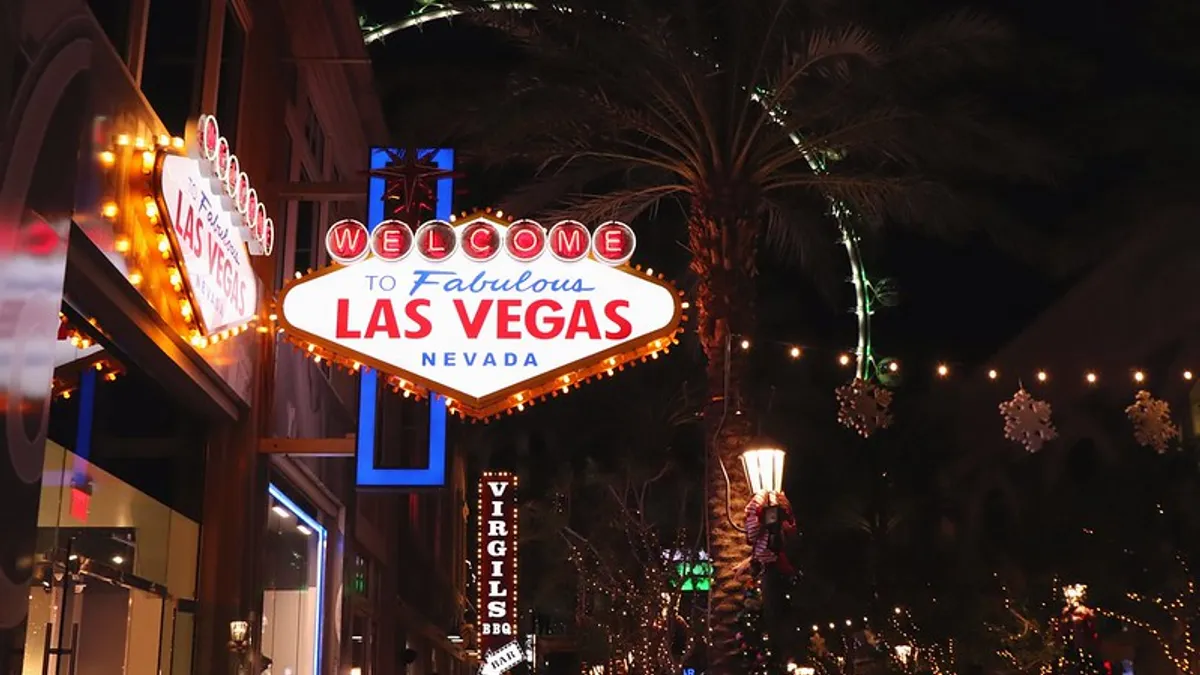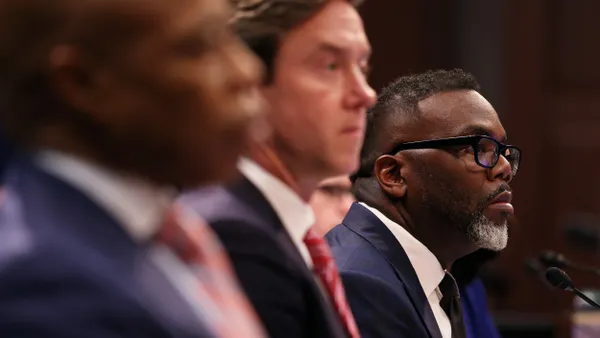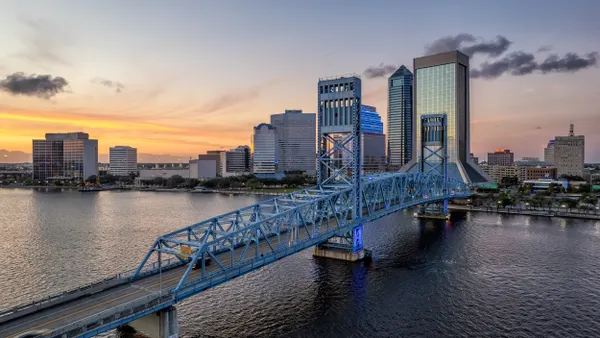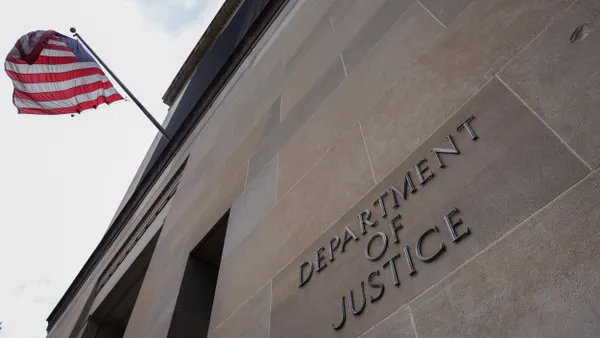Dive Brief:
- The City of Las Vegas' Economic and Urban Development department launched a multi-media campaign to entice remote workers to relocate to the city, joining a growing number of localities — including Tulsa, OK; Savannah, GA; Topeka, KS and Northwest Arkansas — seeking to lure remote workers.
- The effort includes a roughly $9,000 digital ad campaign that targets tech workers from San Francisco and Seattle. The campaign also includes a roughly $7,000 LinkedIn outreach initiative to target individuals working at tech companies like Microsoft, Facebook and Square that have switched to remote-optional workforce, according to Ryan Smith, business development manager with the city's economic and urban development department. The LinkedIn campaign should reach about 475 people per week, he said.
- The campaign highlights the perks of living in Las Vegas, which Smith said include no state income tax, affordable housing compared to other tech hubs, less congestion, sunny weather, a downtown Innovation District and numerous nightlife and recreational attractions.
Dive Insight:
Like many others, Las Vegas' economy has been hard-hit by COVID-19. In October, the city landed in the top spot of places where residents are feeling the most financial distress, according to WalletHub, in part due to the pandemic’s effect on the tourism and entertainment industries.
The city's multi-media campaign to attract remote workers is in part an effort to stabilize the local economy, according to Smith.
"We’ve had a significantly higher unemployment due to the pandemic than the rest of the country," he said. "If we can get people that are employed making high salaries to move in, it's going to obviously stabilize discretionary spend and stabilize our retail market... and even hospitality and entertainment [industries]."
The effort is also designed to help build a talent pipeline for the city’s technology and innovation ecosystems. Las Vegas has made a push to become a technology hub over the last decade, Smith said, with one of those efforts centered around the city's new 11,000-square-foot International Innovation Center for emerging tech companies. The area is also home to a Virgin Hyperloop test site, which carried out the first human travel in one of its hyperloop pods last week.
Unlike other remote work relocation efforts seen in U.S. cities, Las Vegas isn’t offering a cash incentive in its campaign. Smith said his department evaluated the Tulsa Remote program, which offers $10,000 to remote workers, but found the cash wasn’t a "determining factor" for an individual’s move. Instead, the City of Las Vegas has considered other potential perks like a commuter plane to take people to their company headquarters or hotel discounts to visit the city before making the move, according to Smith.
Depending on the success of the current multimedia campaign, he said they might consider implementing additional perks in a future relocation campaign.
The Tulsa Remote program has seen success in attracting Bay Area techies to its program, which Vegas also hopes to see. Tulsa's effort saw a 36% increase in applications since the pandemic began in March, with almost 600 of those applications coming from the Bay Area. And the pandemic has seemed to have piqued people’s interest in the program, bringing in three times as many participants this year compared to 2019.












